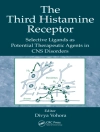Genetically-engineered mouse models for cancer research have become invaluable tools for studying cancer biology and evaluating novel therapeutic approaches. This volume focuses on state-of-the-art methods for generating, analyzing and validating such models for studying aspects of human cancer biology. Additionally, these models are emerging as important pre-clinical systems in which to test cancer prevention and therapeutic strategies in order to select compounds for testing in clinical trials.
Tabla de materias
Foreword.- Preface.- Overview of Designing Genetically-Engineered Mouse Models.- The Use of Cre-lox P Technology and Inducible Systems to Generate Mouse Models of Cancer.- Using Recombineering Technology To Create Genetically Engineered Mouse Models.- Insertional Mutagenesis for Generating Mouse Models of Cancer.- The RCAS/TVA Somatic Gene Transfer Method In Modeling Human Cancer.- Target-selected ENU Mutagenesis to Develop Cancer Models in the Rat.- The Tumor Pathology of Genetically Engineered Mice: Genomic Pathology.- Genomic DNA Copy Number Alterations in Mouse Cancer Models and Human Cancer.- Characterization of chromosomal translocations in mouse models of hematological malignancies using spectral karyotyping (SKY), FISH, and immunocytochemistry.- Expression Profiling of Mouse Models of Human Cancer: model categorization and guidance for preclinical testing.- Imaging mouse models of human cancer.- Identifying Mammary Epithelial Stem and Progenitor Cells.- Differentiation Programs in Development and Cancer.- Roles of p53 and PRB Tumor Suppressor Networks in Human Cancer: Insight from Studies in the Engineered Mouse.- Mouse Models for Colorectal Cancer.- Src family tyrosine kinases: Implications for mammary tumor progression.- Maspin and Suppression of Tumor Metastasis.- Epigenetic Mouse Models.- Modeling Transforming Growth Factor-ß Signaling in Cancer.- Modeling Stromal-Epithelial Interactions.- Utilizing Mouse Models of Human Cancer for Assessing Immune-Modulation of Cancer Development.- Transplanted Tumor Models For Preclinical Drug Testing And The Potential Benefit Of Genetically Engineered Mouse Models.- The Development and Use of Genetically Tractable Pre-Clinical Mouse Models.- Animal Models for Breast Cancer Prevention Resarch.- Oncogene Addiction: Mouse Models and Clinical Relevance for Molecularly Targeted Therapies.- Mouse Models in Preclinical Drug Development- Applications to CNS Models.- Mouse Models of Human Cancer: Role in Pre-clinical Testing and Personalized Medicine.- Mighty, But How Useful? The Emerging Role of Genetically Engineered Mice in Cancer Drug Discovery and Development.- Index.












